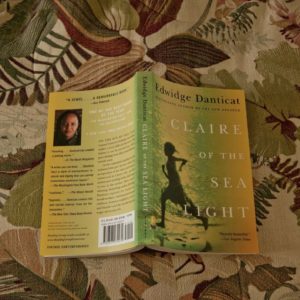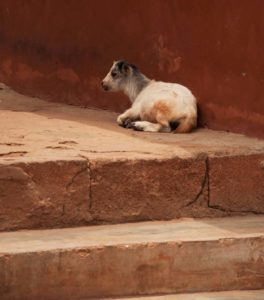No, there is not more beauty here than in other places, and all these objects, which have been marveled at by generation after generation, mended and restored by the hands of workmen, mean nothing, are nothing, and have no heart and no value;––but there is much beauty here, because everywhere there is much beauty. (Rainer Maria Rilke. Letters to a Young Poet. Trans. Stephen Mitchell. NY: Modern Library, 2001, p. 47)
Sleep doesn’t come like she used to. And not only do I know better to not be bitter, I feel no bitterness towards her. I sense I am afraid. Of what I know not of. But I am mocked by my mind of the merry jokes I once made of how well I slept, no less than the really-really dead. And I feel I have a new friend, an imaginary one actually––but what is not imaginary? My new friend is Chaucer’s speaker from the Book of the Duchess. My dear friend begun his tale with such melancholic lines, which I feel a strong urge to perform (to no audience except self) amidst tremendous laughter and tears. Supposing I have truly lost it now? But here are the lines:
I have gret wonder, by this light
How that I live, for day ne night
I may nat slepe wel nigh nought
Purely for defaute of slepe
Of nothing, how it cometh or goth,
Ne me nis nothing leef nor loth.
Al is yliche good to me,
Joye or sorwe, wherso it be,
For I have feling in nothinge,
But as it were a mased thing
Alwey in point to falle adoun,
For sorwful imaginacioun
Is alwey hooly in my minde.
Unlike my friend, I do get some sleep and although I have been entertaining some “sorwful imaginacioun” of my own, it is not terrible…well let’s get to Rilke.
What gave me pause in the above passage is Rilke’s emphasis on the amount of beauty in a place, in this instance, Rome. Also interesting is his threading of heart and value to beauty. If you are as big a fan of beauty as I am, Rilke’s words would give you pause, too. But what is beauty? The dictionary defines it as that which is aesthetically pleasing. And yet to this Rilke says “and all these objects, which have been marveled at by generation after generation, mended and restored by the hands of workmen, mean nothing, are nothing, and have no heart and no value.” What leaps out of the shadows of these words is the force behind “all these objects.” That is the creator/consumer of objects; the marveler behind marvel; the constituent of generations; the essence of the hands of workmen. What these words seem to suggest is that beauty is not where observation rests and finds joy but within the observer herself. Which means that without the observer the beauty of an object is meaningless thus valueless.
Again, what is beauty? I like to think of it as the truthful way of experiencing being. Some argue that truth is not beauty but I am yet to be able to appreciate that particular branch of thought. That which appears as beauty but false is not truly beautiful, and that which is not truly beautiful is not beauty. Even death is beautiful from the stance of truth. Even sleep’s rejection is beautiful from the state of truth. Then perhaps the other question is where is beauty? And you have heard them exclaim from rooftops: Beauty dwells in the beholder’s eye. Which literally means the place whence beauty springs is the self. If beauty’s place is the self, then cannot one say the specific location might as well be the heart? For is not the heart that which always seeks beauty and recognizes it even before the intellect does? If so, what is truth as beauty?
Truth as beauty is that “there is not more beauty here [Rome] than in other places[…]––but there is much beauty here, because everywhere there is much beauty.” For that which is true is true everywhere. Not more true or less true, just true. Whether or not it can be perceived as it is does not diminish what it is. Hence beauty as truth is the same everywhere––be it Rome or Lomé. The heart that knows true beauty sees “much beauty” everywhere. For everywhere is that which is experienced from a truthful, thus beautiful, heart. To take it up a notch, one may say a truthful heart is a loving heart. And what is love if not the epitome of beauty? Thus one may say, beauty in truth is love. And love as “much beauty” is everywhere.
As a poet Rilke knows that that which lives beautifully is the heart that values truth. Hence that which has heart, a conscious heart, is a place within which value for beauty breathes. Thus a thing lacks meaning if it lacks a conscious heart for it lacks a conscious life which has no understanding of true value and therefore cannot recognize beauty. Beauty then is not that which is lifeless or unconscious of life. Beauty is that which lives generously as love at every instance.
—
Jane A. Odartey



